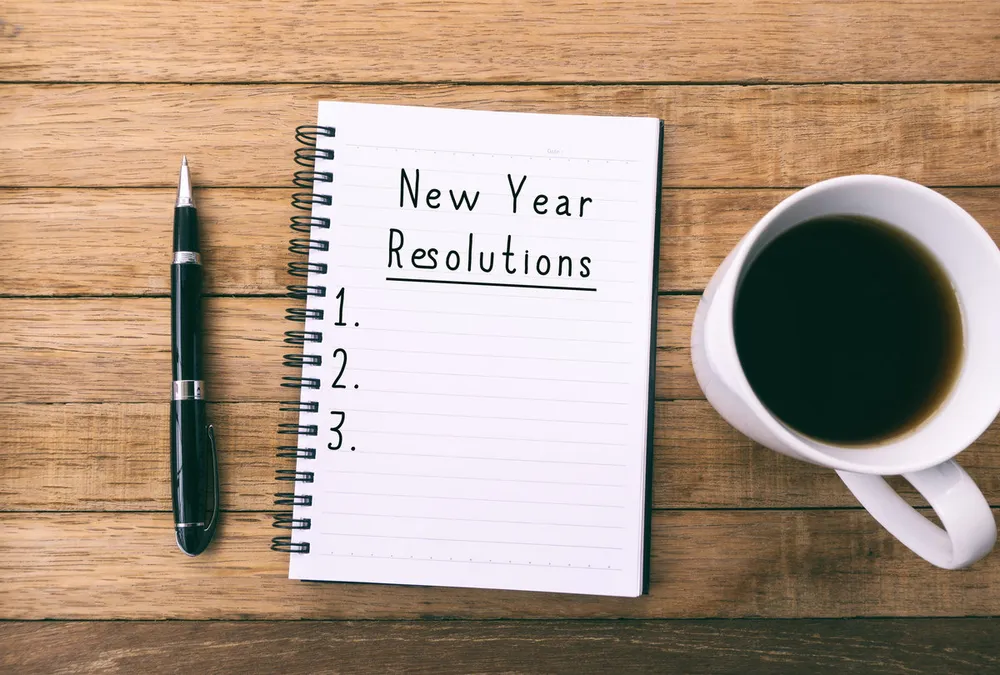Embrace Recovery as Your New Year's Resolution
As the New Year approaches, why not consider a fresh start for yourself? While it may seem straightforward, addiction recovery coupled with New Year’s resolutions can be challenging. Even if you've already committed to recovering from addiction, the urge to set overly ambitious goals at the start of the year can lead to unnecessary stress.
There’s also the issue of setting your goals. How many should you aim for? How can you ensure tangible progress? How do you handle the stress that might come from these resolutions? For some, this self-imposed stress might actually trigger cravings, complicating the recovery journey.
How to Make Your New Year’s Resolutions Effective?
To embark on the New Year on the right note, consider taking a moment to pause. For those in addiction recovery, resolutions should simplify, not complicate, the process. By setting small, manageable goals that support rather than hinder your recovery, you can continue progressing successfully.
Research into New Year resolutions has identified three crucial components for successful outcomes. These are:
- Self-efficacy
- Skills to change
- Readiness to change
Before you decide on your resolutions, evaluate if you embody these three traits. Are you strong enough to change? Do you possess the necessary skills? Are you truly ready to embrace change?
Approaches for Choosing Your Resolution
You need a clear vision of what you want to achieve before you set out to fulfill your resolution. Whether your goal is big or small, breaking it into manageable tasks can make the process smoother.
Besides defining a clear objective, consider how you’ll maintain motivation throughout the year. Initial readiness is crucial, but sustained motivation is equally important. Research highlights how even those who enter substance abuse treatment involuntarily can develop the motivation to continue, matching those who voluntarily admitted themselves. Thus, ongoing motivation can be more crucial than initial readiness.
What If Your Resolution Is to Begin Recovery?
No matter what substance use disorder challenges you face, resolving to seek sobriety is commendable. Perhaps you relapsed this year, or maybe this is your first time considering treatment. Either way, the New Year is a prime time to start.
Tip #1: Initiate a treatment program. Recovery programs offer numerous resources to help you confront addiction and embark on a healing journey.
Tip #2: Engage with a support group. These groups can provide the network you need during recovery. Whether you prefer the 12-step model or another type of group, support is crucial since every recovery journey is distinct.
Tip #3: Lean on loved ones for support. Beyond your treatment program and support group, turning to those who care about you can be invaluable. Share your experiences and struggles with family and friends, and ask for their support as you move forward.
How to Set Effective “SMART” Goals for the New Year?
If you’re already sober and wish to establish complementary goals, consider the “SMART” goal framework. This method is widely used and highlights the characteristics of effective goal-setting. Goals should be:
- Specific
- Measurable
- Achievable
- Relevant
- Time-bound
Start with a specific, clear goal to make it more attainable. Even small goals should be precise! Ensure your goal is measurable, allowing you to track and celebrate progress. Avoid setting unattainable standards. Choose a goal that positively influences your life and aligns with other objectives. Lastly, set a timeline for achieving your goal.
How to Foster a Positive Mindset for Your Resolutions?
With your SMART goal in place, maintaining a positive mindset is crucial for success. Achieving New Year’s resolutions requires patience and dedication.
Stay optimistic to maintain a healthy mindset. Resolutions take time, and setbacks are normal. Staying positive, encouraging yourself, and avoiding negative thoughts will help you persevere during tough times.
Keeping your support network close is another simple strategy. Rely on those who wish to help and don’t hesitate to ask for assistance! A strong support system can keep you accountable.
Establishing a routine also promotes a healthy mindset. Integrate healthy habits like nutritious eating and regular exercise into your schedule. Even a simple daily walk can stabilize your mind. Gradually, enhance your routine and reward yourself for consistency.
To begin or continue your recovery journey this New Year, contact a professional at Impact Recovery today for the support you need.
